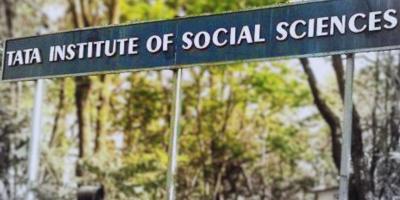21 Apr. 24
The Tata Institute of Social Sciences (TISS) has recently ignited controversy by implementing strict measures against perceived dissent and ‘anti-national’ activities on campus. This crackdown has resulted in the suspension of Ramadas Prini Sivanandan, a prominent PhD scholar and activist, following his participation in a peaceful protest against the National Education Policy (NEP).
Sivanandan, hailing from a Dalit community and actively engaged in student leadership, was deemed guilty of violating TISS’s honor code for attending the protest, which criticized government policies. The institute’s administration, including figures like pro-vice-chancellor Professor Shankar Das, accused Sivanandan of harboring political ambitions and affiliations contrary to the institute’s ethos.
In addition to his protest involvement, Sivanandan faced scrutiny for organizing screenings of politically critical documentaries, including ‘India: The Modi Question’ and ‘Ram Ke Naam’. TISS’s response, which includes involving law enforcement agencies in student activities, marks a significant departure from its historical stance on academic freedom.
Critics argue that TISS’s actions represent a troubling trend towards stifling dissent and aligning with the ruling Bharatiya Janata Party (BJP). By targeting student organizations and events critical of government policies, the institute has raised concerns about the erosion of democratic principles within academic institutions.
TISS’s approach has prompted widespread debate within academic circles, with many questioning the implications for freedom of expression and intellectual inquiry on campus. The controversy underscores broader tensions between educational autonomy and political alignment, reflecting a larger societal debate over the boundaries of dissent in contemporary India.
Furthermore, Sivanandan’s suspension is part of a broader pattern at TISS, where several student-led initiatives and organizations critical of government policies have faced suppression. The institute’s administration has also been accused of curbing academic activities that challenge the ruling establishment’s narratives.
Notably, TISS’s decision to involve law enforcement agencies in student matters has raised eyebrows, particularly considering the historically autonomous nature of academic institutions in India. Critics view this as a worrying sign of increased government interference in educational affairs.
The fallout from Sivanandan’s suspension has led to calls for greater safeguarding of academic freedom and the right to dissent within Indian universities. As debates continue to unfold, TISS’s actions have become emblematic of broader concerns regarding the state of civil liberties and democratic norms in the country’s academic landscape.




